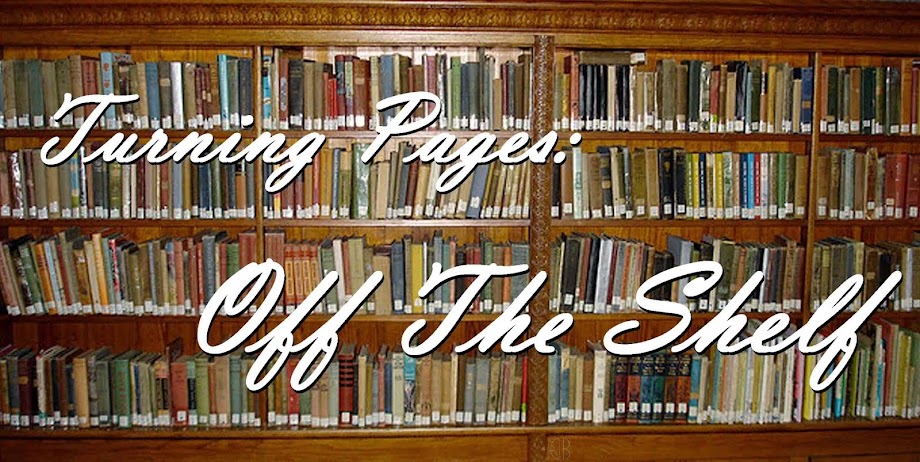Full disclosure, I love short stories. Part of it is that primarily short stories are what I write, but another part is that they're so convenient to read. A full story in 20-40ish pages, beginning to end, an investment of just the right amount of time so that if I'm satisfied I'm
really satisfied & if I'm disappointed I don't feel like I've wasted days of my life.
There's skill involved in crafting a good short story, & of the contemporary masters no 1 is as incredibly talented as Alice Munro, whose recent Nobel Prize win shows that it is actually possible to make a career out of short stories. Her latest & most likely last short story collection Dear Life has been on my to-read list ever since it was released (before her Nobel win, I might add—I've been a fangirl for ages, ever since I 1st came across her work in a lit class anthology) & I am pleased yet not surprised to say it didn't disappoint. 14 stories, the last four autobiographical, tell tales believeable yet memorable, with relatable characters & phrases that resonate. Munro writes in past & present tense, 1st & 3rd person, linear & nonlinear chronologies, yet there's never any confusion, or any jarring changes that take the reader out of the story. It's hard to pick favorite or least favorite stories, so instead I'll just touch on them all briefly.
Setting is a specialty of Munro's. What I mean is that not only is her writing easy to place & visualize, but she can turn setting into a character & use it as a driving force in her stories. Amundsen is a fittingly drole name for the depressing little town where the story "Amundsen" is set. From arriving in Amundsen to leaving it, the town plays its role in the narrator's life. Similiarly Maverly in "Leaving Maverly" drives the narrative. In the story "In Sight of the Lake", the setting plays a huge role, made obvious only at the very end of the story. Though I've never been a huge fan of using setting so heavily, Munro does it so well I couldn't help but want to hear more about the Canadian towns & cities & rural areas where her stories were set.
One of the other things I love about Alice Munro stories is that their titles always directly feature in some way in her stories. "To Reach Japan" references its protagonist's own words in a letter to a lover, "Writing this letter is like putting a note in a bottle—And hoping It will reach Japan." In that 1 verse, the spirit of the whole story is captured. The title "Gravel" hints at the importance of the gravel pit mentioned in the story's very 1st sentence to the overall story. The title "Pride" pinpoints the underlying theme of its narrator's story, & is succinctly wrapped into the story's ending with a scene involving the 2 main characters watching a family of skunks of all things proudly crossing the narrator's yard. Munro never fails to adequately tie the title of her stories into the stories themselves, so that as a reader I never question her titling choices.
Like everything of Munro's I have ever read, the stories in Dear Life are completely character-driven. In "Train", I was completely swept up by Jackson's story, fiercely sympathizing with his need to run even though his background is nothing like mine. In "Dolly", the protagonist's nonchalance & insecurities alike were highly relatable & so entertaining because they were relatable. & in "Corrie", well, most of us know what it's like to make mistakes, to get swept up in the moment. The point is Munro writes characters who are real, & that's what makes them so fantastic.
This is never more true than in the last flight of stories of the book, the Finale which Alice Munro prefaces as "the first and last—and the closest—things [she has] to say about [her] own life." What a treat she gives us, her faithful readers, by providing such an intimate glance into her own story. "The Eye" & "Night" recount a hardship & an obstacle respectively in her childhood, while "Voices" is a bit lighter yet still tonally congruent with the 1st 2 stories. The standout to me however is the book's titular piece, "Dear Life", which I admit I was building myself up for throughout the entire reading process. It's hard to describe what "Dear Life" is about without saying too much, but having finished reading it hours ago, the final lines continue to stay with me. Alice Munro closes out her last story, her likely last book, possible her entire amazing career with the following lines: "We say of some things that they can't be forgiven, or that we will never forgive ourselves. But we do—we do it all the time." This is classic Alice Munro. There are so many layers to her simple statement, so much that can be read into her words. I've had things done to me that I think can't be forgiven & I've done things I don't think I can forgive myself for doing. Who hasn't? But we do, Munro says, we do give & find forgiveness for the unforgiveable. & we believe her.
Alice Munro never became a novelist as she'd once planned, but she never had to. Dear Life leaves a lasting impression, as does Munro herself. In a time when the short stories are only starting to get back into fashion, Munro has the led the way, proving that we don't all have to write novels to be successful writers. Though I've yet to read even a fraction of Munro's complete works (she's published 12 other short story collections), I already find myself missing her work. Dear Life is many things, including a thank you & goodbye to Munro's readers. Truly, it is a work of the finest art, a masterpiece from the master of the short story.
